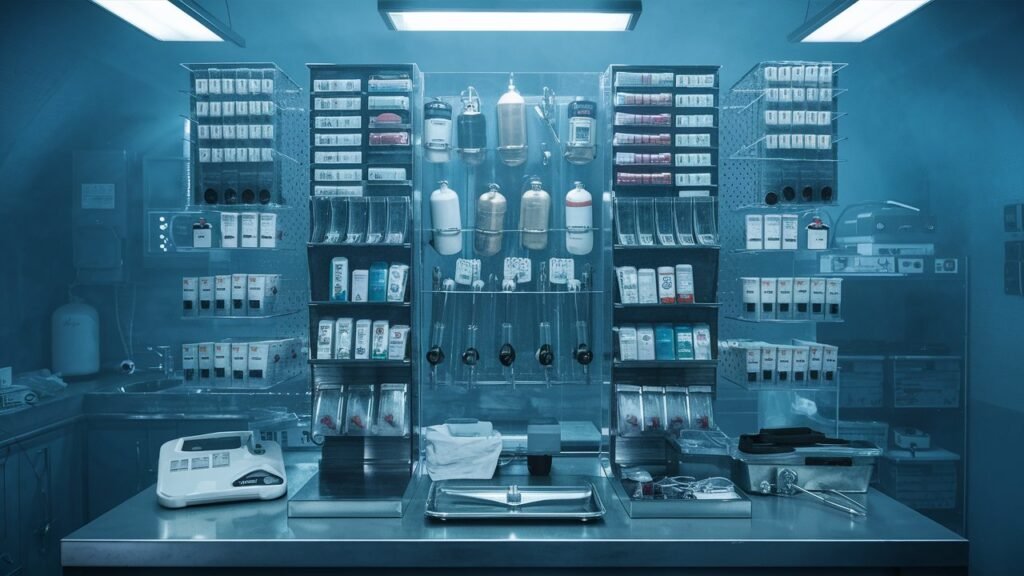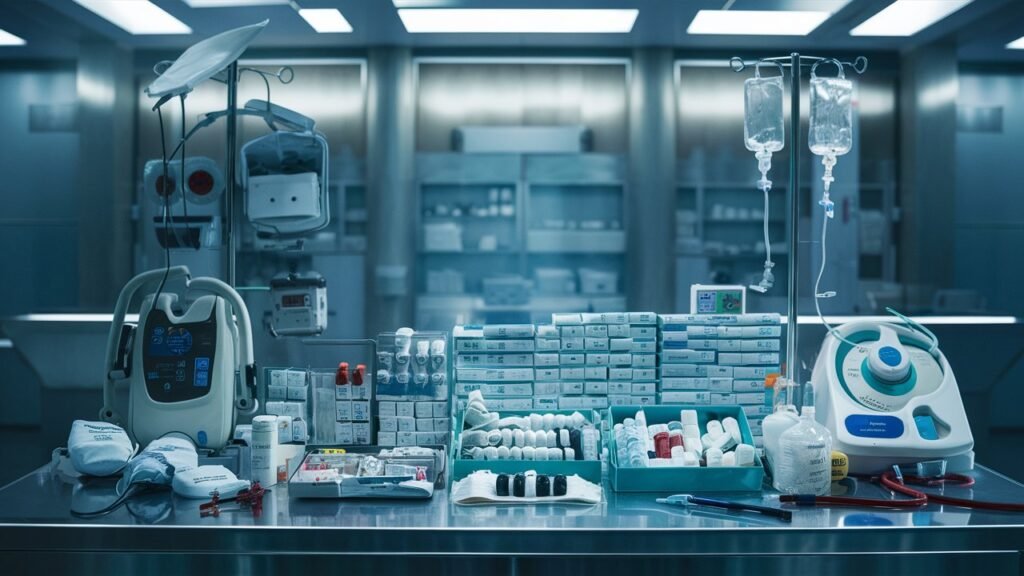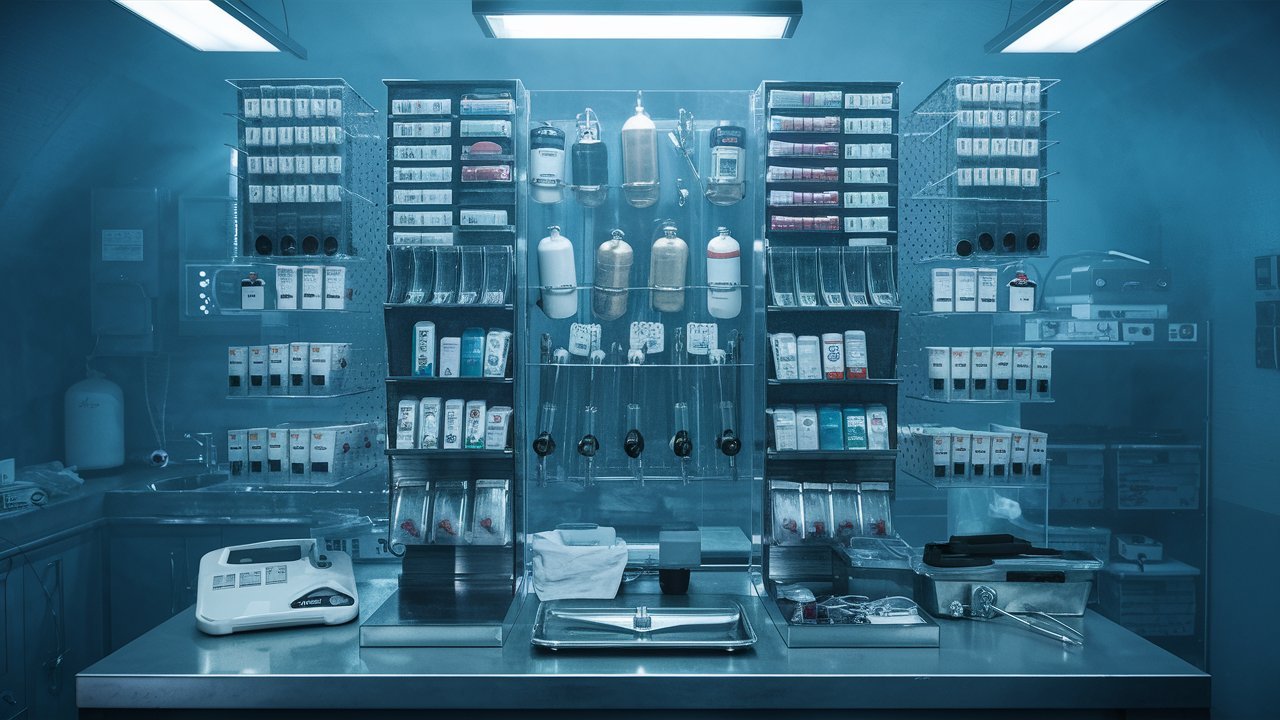In times of crisis, access to emergency equipment drugs can be the lifeline that saves lives. From basic first aid supplies to specialized medications, being equipped with the right tools and medications can significantly improve outcomes in emergencies. In this article, we’ll delve into the importance of emergency equipment drugs and provide insights into building a comprehensive emergency kit to handle a wide range of situations.

Emergency Equipment Drugs: A Lifesaving Arsenal
Understanding the Role of Emergency Equipment Drugs
Emergency equipment drugs encompass a wide range of supplies designed to address various medical needs in critical situations. These can include medications for pain relief, allergic reactions, respiratory distress, and more. Understanding the role of each medication and having them readily available can be crucial for providing timely and effective care during emergencies.
The Importance of Preparedness
In emergencies, every second counts. Being prepared with the right emergency equipment drugs can help individuals and responders act swiftly and decisively, potentially saving lives and minimizing the impact of the crisis. Whether it’s a natural disaster, a medical emergency, or a sudden accident, having access to essential medications and supplies can make all the difference.
Building Your Emergency Kit
Creating a well-stocked emergency kit is essential for every household, workplace, and vehicle. Your kit should include a variety of emergency equipment drugs tailored to your specific needs and circumstances. From bandages and antiseptics to prescription medications and medical devices, here’s what you need to consider when assembling your emergency kit.
H1: Basic First Aid Supplies
H2: Bandages and Dressings Injuries ranging from minor cuts to more severe wounds can occur during emergencies. Having an assortment of bandages, gauze pads, and adhesive tape can help stop bleeding, protect wounds, and prevent infection.
H2: Antiseptics Cleaning and disinfecting wounds is crucial to prevent infections. Antiseptic solutions, wipes, and sprays can be used to clean wounds and reduce the risk of bacterial contamination.

H1: Medications for Common Ailments
H2: Pain Relievers Pain and discomfort are common in emergencies. Over-the-counter pain relievers such as acetaminophen, ibuprofen, and aspirin can provide relief from headaches, muscle aches, and minor injuries.
H2: Antihistamines Allergic reactions can occur suddenly and unexpectedly. Antihistamine medications can help alleviate symptoms such as itching, swelling, and hives caused by allergic reactions to insect bites, food, or medications.
H1: Prescription Medications
H2: Personalized Medications Individuals with chronic medical conditions should ensure they have an ample supply of their prescription medications in their emergency kit. These may include medications for hypertension, diabetes, asthma, and other conditions.
H2: Emergency Inhalers For individuals with respiratory conditions such as asthma or COPD, having rescue inhalers readily available is essential. These medications can help alleviate breathing difficulties and prevent severe exacerbations during emergencies.
H1: Specialized Medical Equipment
H2: Blood Glucose Monitors For individuals with diabetes, monitoring blood glucose levels is essential for managing the condition. Including a blood glucose monitor and testing supplies in your emergency kit can help ensure proper management even in challenging circumstances.
H2: Epinephrine Autoinjectors Individuals with severe allergies or a history of anaphylaxis should carry epinephrine autoinjectors with them at all times. These devices can quickly deliver a dose of epinephrine to counteract severe allergic reactions and prevent life-threatening complications.
FAQs (Frequently Asked Questions)
How often should I check and update my emergency kit? Regularly reviewing and updating your emergency kit is essential to ensure that medications and supplies are not expired and that you have everything you need. It’s recommended to check your kit every six months and replace any expired medications or supplies.
What should I do if I run out of prescription medications during an emergency? If you anticipate running out of prescription medications during an emergency, contact your healthcare provider as soon as possible to discuss options. They may be able to provide guidance on alternative medications or help you obtain a refill in advance.
Can I use expired medications in an emergency? While expired medications may still be effective in some cases, it’s generally recommended to avoid using them, especially for life-saving medications such as epinephrine autoinjectors. Expired medications may have reduced potency or effectiveness, which could compromise their ability to provide adequate treatment.
How can I ensure that my emergency kit is easily accessible in an emergency? Store your emergency kit in a designated, easily accessible location that is known to all members of your household or workplace. Consider keeping smaller kits in different locations, such as your car or workplace, to ensure you always have access to essential supplies.
What should I do if someone is having a severe allergic reaction and I don’t have an epinephrine autoinjector? If someone is experiencing a severe allergic reaction and you don’t have access to an epinephrine autoinjector, call emergency services immediately. While waiting for help to arrive, try to keep the person calm and monitor their condition closely.
Is it necessary to include medications for pets in my emergency kit? If you have pets, it’s a good idea to include medications and supplies for them in your emergency kit as well. Talk to your veterinarian about recommended medications and first aid supplies for your pets, and ensure you have an ample supply on hand.
Conclusion
In conclusion, having the right emergency equipment drugs can make all the difference in times of crisis. By being prepared with essential supplies and medications, you can ensure that you and your loved ones are equipped to handle a wide range of emergencies. Remember to regularly review and update your emergency kit to ensure it remains stocked and ready for any situation that may arise.

